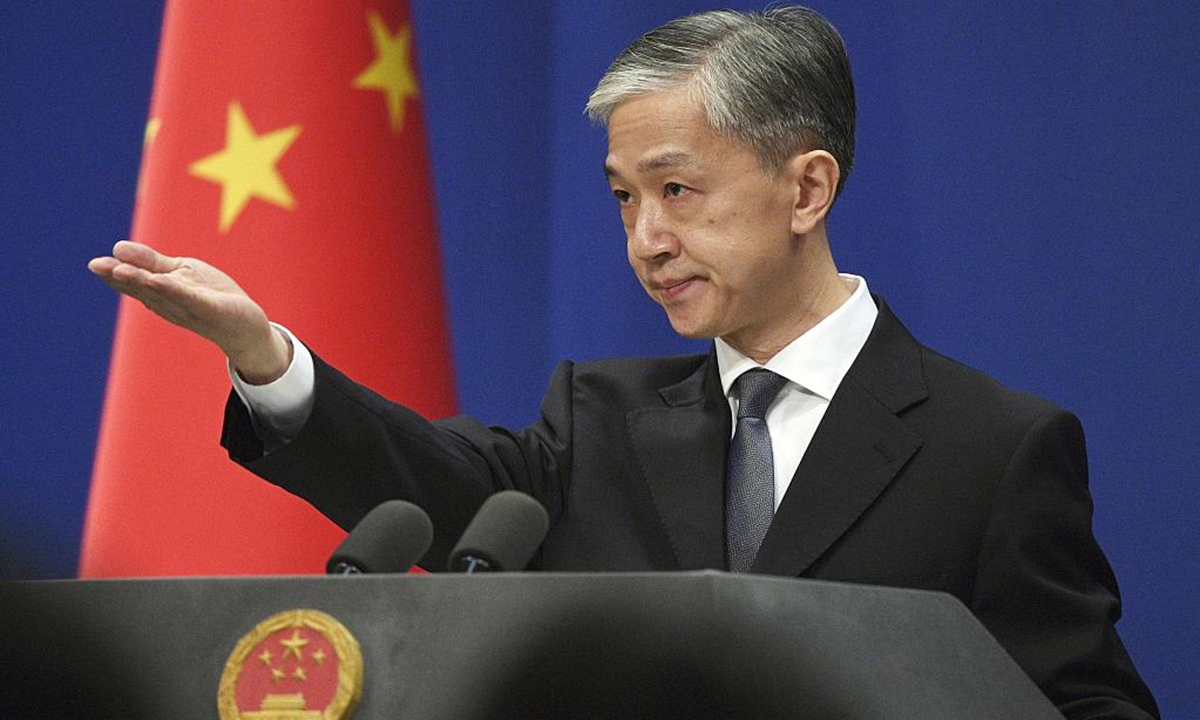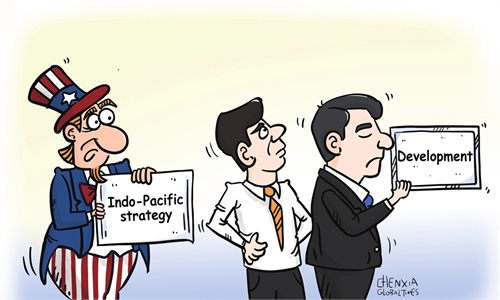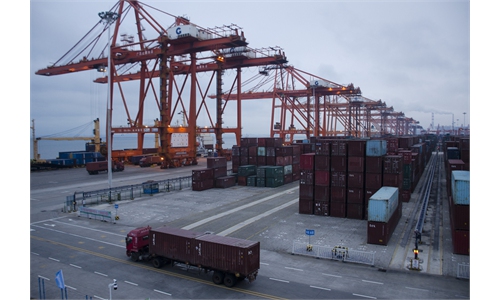IPEF is a political tool to serve US’ interests under the name of regional cooperation: China’s Foreign Ministry

Wang Wenbin, spokesperson of Chinese Foreign Ministry. Photo: CFP
China believes that the US launched Indo-Pacific Economic Framework (IPEF) is a political tool designed by Washington to serve its own benefits, which is unlikely to last for a long time if the "framework" cannot help regional development, Wang Wenbin, spokesperson of China's Ministry of Foreign Affairs, said on Wednesday.
The comment was in response to media questions whether the IPEF will provide Asian countries more options when it comes to regional economic cooperation.
"The US vows to win the 21-century competition with the IPEF, which demonstrated that serving the US' own economy will be the first duty of the initiative," said Wang. He noted the US' absence from Trans-Pacific Partnership (TPP), Comprehensive and Progressive Agreement for Trans-Pacific Partnership (CPTPP) and Regional Comprehensive Economic Partnership (RCEP)was the result of "only considering its own interests".
Wang said that the launch of IPEF is to create a new industrial chain dominated with the US-led trade rule, trying to decouple from Chinese economy.
"US Secretary of Commerce suggested that IPEF could be a turning point of the US in rebuilding its economic leadership and replacing China's role in the region," said Wang. He noted multiple regional countries are concerned that IPEF may bring negative consequences by disrupting their trade with China.
Though IPEF seems to cover a number of countries in the region, the "framework" fails to take into account of the divergent development levels and actual demands of those countries, Wang said, adding the "framework" lacks term of tariff exemptions and market access measures, said Wang.
Wang reaffirmed that China is willing to build an open economic system with countries in Asia-Pacific region and implement true multilateralism.
Global Times



